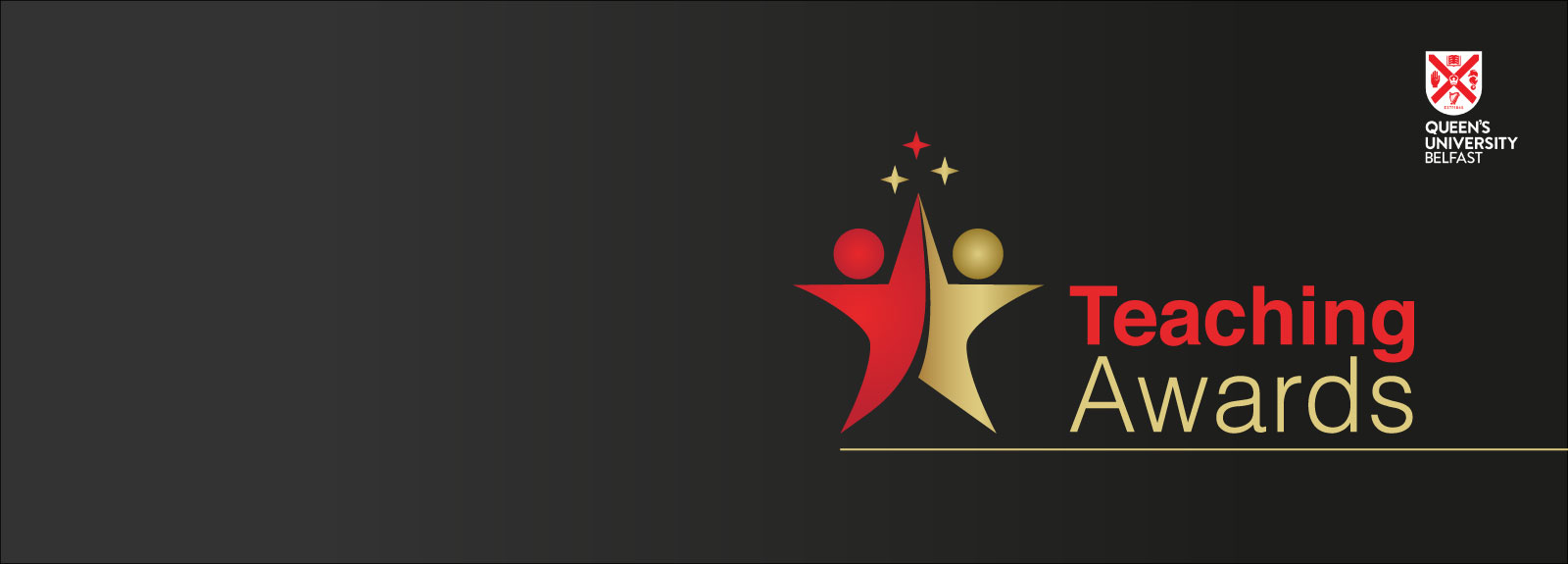Queen's University Belfast Teaching Awards 2025
The Queen's University Teaching Awards recognise the learning, teaching and support practices that enhance the learning experiences of our students. The Awards are open to academic staff, professional support service colleagues and graduate teaching assistants (GTAs). Individuals or teams can apply and examples of partnerships with students are particularly welcomed.
The Notes for Guidance for Applicants provide further information on the application process and criteria; the application should be made on the Application template.
The closing date for receipt of applications is 4 pm on 31 July 2025. Applications should be submitted to ced@qub.ac.uk. Queries can be directed to Liz McDowell on e.mcdowell@qub.ac.uk.
Successful applicants will receive a digital badge and a certificate to recognise their achievement and, where appropriate, support to apply to other recognition schemes, such as the Advance HE National Teaching Fellowship Scheme and Collaborative Award for Teaching Excellence.
There will be a celebratory event in September to mark the achievements of the Teaching Award recipients.
